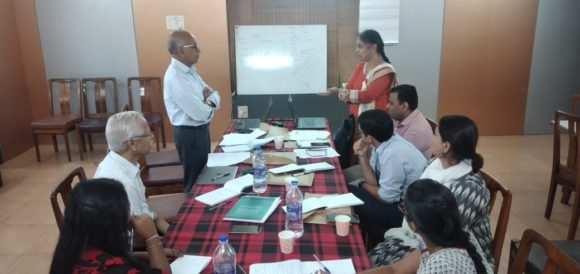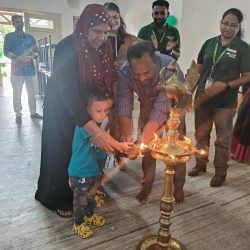Steering Committee meeting for consolidating UG palliative care education in medical colleges
Integrating palliative care into under-graduate medical education is one of the key strategies palliative care activists have identified to advance palliative care on a pan-India basis. In fact, when the activists took the matter of access to palliative care to Supreme Court in 2007, three essential requests were made arguing that lack of access to palliative care violated an individual’s fundamental right to live with dignity as guaranteed by the constitution of India. These included developing central and state government palliative care policies, simplification of 1985 NDPS act and integration of palliative care education in medical and nursing education. While the first two requests tasted fairly good success in the form of state policies and amendment of the 1985 act, integration of palliative care education at under graduate level remains a tough nut to crack barring sporadic and unstandardized courses taught in some institutions.
The Medical Council of India introduced Attitude Ethics and Communication (AETCOM) module and Competency Based Medication Education (CBME) curriculum to redesign medical education in 2018 and 2019 respectively. These recent developments with implicit palliative care values come as a breath of fresh air for the millions who suffer and for palliative care enthusiasts, as now there is a window of opportunity to introduce palliative care specific curriculum to medical institutes in the country without disrupting the current curriculum implementation model.
A steering committee was constituted to conceptualise consolidated palliative care education project. The committee members are Dr M R Rajagopal (Chairman-Pallium India), Dr S P Kalantri (Director, Professor and Medical Superintendent MGIMS Wardha), Dr Mahalakshmi VN (Dean AVMC Puducherry), Dr Dinesh Kumar (Professor Community Medicine, PSMC Karamsad) and Dr Jagdish R Varma (PSMC Karamsad). The committee met for a two-day workshop at Sree Mulam Club Trivandrum on 21st and 22nd of January 2020, facilitated by Pallium India. A four member team from Pallium India too participated in the workshop to assist the experts.
The committee brainstormed and discussed on topics ranging from module template, creation of module and teaching materials, communication, implementation, monitoring and evaluation plan, project proposal and fund raising for the initiative. A comprehensive project plan was devised with strict implementation timeline to kick-start the project this academic year (by August 2020).





